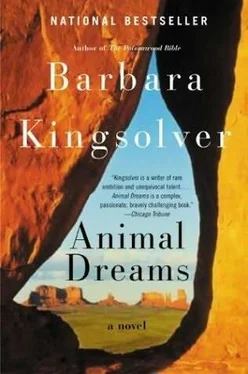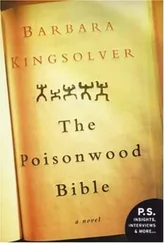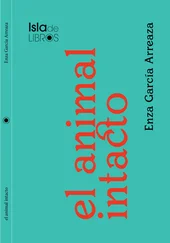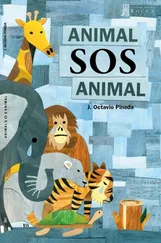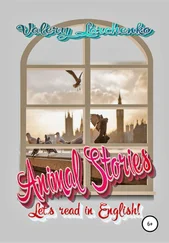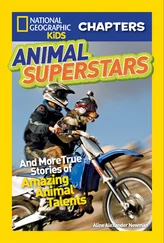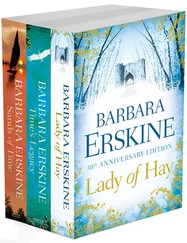“I’m getting there.”
“I guess I never knew there was so much to it.”
He set down his cup and crossed his arms. “Pretty good for an Injun boy, huh?”
“You could have told me more about it.”
He smiled. “Codi, did anybody ever tell you a damn thing you didn’t want to know?”
I stalled, avoiding the question. “If I told you I wanted to go to bed with you right now, would you think I only loved you for your mind?”
His eyes sparkled. “I think I could overlook it.”
That night I lay in Loyd’s arms and cried. Since the day I spent with Uda in the attic, wishes and anger had backed up in me, and now they rushed out, rocketing my mind around on a wild track toward emptiness. I told Loyd about the photographs and unrelated things, old things, like making pies with Uda Dell. “I have all these memories I couldn’t get hold of before, but it doesn’t make me feel any better,” I said.
“What kind of memories?”
“Everything. Really, my whole childhood. Most of it I had no idea was there. And most of it’s happy. But Loyd, it’s like the tape broke when I was fifteen, and my life started over then. The life I’d been living before that was so different-I don’t know how to say this, but I just couldn’t touch that happiness anymore, I’d changed so much. That was some other little bright-eyed, righteous girl parading around trying to rescue drowning coyotes and save chickens from the stewpot. A dumb little kid who thought the sun had a smiley face on it.”
“And what happened when she was fifteen?”
I withdrew from Loyd’s arms. Had I set him up to ask? I lay looking at the wall, considering whether I could tell him. If I only had two more months in Grace, it wasn’t long enough. “I can’t explain it,” I said. “I guess it finally hit me that nobody was going to take care of me.”
“In high school you were doing a pretty good job of taking care of yourself.”
“That’s what it looked like. It probably looks like that now, too.”
Loyd took me back onto his shoulder, which felt hard like a cradleboard under my head. He stroked my cheek. “You still have all the family you grew up with. Hallie’s somewhere out there. She’ll come back. And Doc’s still here.”
“Neither one of them is here.”
“Codi, for everybody that’s gone away, there’s somebody that’s come to you. Emelina thinks you’re her long-lost sister. You know what she told me? She wants you there in that little house forever. She said if I let you leave Grace she’ll bust my butt. She loves you to death.”
“So this is all a conspiracy, I said.”
“Yeah. Emelina bribed me to fall in love with you.” He laughed and kissed my hair. “Honey, there’s not that much money in the world.”
I didn’t wish to be comforted. “You can’t replace people you love with other people,” I said. “They’re not like old shoes or something.”
“No. But you can trust that you’re not going to run out of people to love.”
“I don’t think I can trust life that far. I lost my mother. You don’t know what that’s like.”
“No, I don’t.”
“You don’t have any idea what the whole story is, Loyd. You don’t know everybody I’ve lost.”
He gathered me into his arms and we didn’t talk anymore, but in my chest I could still feel a small, hard knot of anger and I held on to it. It was my wings. My exit to safety.
Finally I read all of Hallie’s letters. There were half a dozen I’d never opened, the ones that came after. I knew she’d mailed them before she was kidnapped-I could read the postmarks-but I still held the hope that there might be some clue in there that would help bring her back. Once I opened the letters that hope would be gone.
But I was past a certain point now, like Loyd’s train going over the hill. The momentum of wanting to hear Hallie, even for a few minutes, was growing heavier than anything I might have had to lose. More than ever in my life I needed to ask her what to do, how to live without guarantees, without safety.
So I read the letters, and there were no clues. Only the ordinary, heartbreaking details of war and rural life and the slow progress of hope.
I’d forgotten that her last letter, which I’d read on the trip to Santa Rosalia, was a tirade. I had to get it out and read it again to remember, and the sting was gone. “If I get another letter that mentions SAVING THE WORLD, I am sending you, by return mail, a letter bomb.” (Had I really used those words? But I knew I had, more than once.) “I don’t expect to see perfection before I die. What keeps you going isn’t some fine destination but just the road you’re on, and the fact that you know how to drive.” Two hours after she’d mailed that, she had written a pained apology that reached me now, a lifetime later. Any one moment could be like this, I thought. A continental divide.
Codi [she wrote], I’m sorry, I didn’t say it right. I’m touchy about being worshiped. I’m afraid of becoming Doc Homer Junior, standing on a monument of charity and handing down my blessings, making sure everybody knows where we all stand. I don’t feel like I’m doing that, but it’s the thing you fear most that walks beside you all the time. I don’t want you of all people to see me that way. I’m not Saving Nicaragua, I’m doing the only thing I can live with under the circumstances. The circumstances being that in Tucson I was dying among the garden pests. Working with refugees, and also subsidizing the war that was killing them. I had to get out.
By virtue of our citizenship we’re on one side of this war or the other. I chose sides. And I know that we could lose. I’ve never seen people suffer so much for an ideal. They’re sick to death of the embargo and the war. They could say Uncle, vote for something else, just to stop this bludgeoning. And you know what? I don’t even consider that, it’s not the point.
You’re thinking of revolution as a great all-or-nothing. I think of it as one more morning in a muggy cotton field, checking the undersides of leaves to see what’s been there, figuring out what to do that won’t clear a path for worse problems next week. Right now that’s what I do. You ask why I’m not afraid of loving and losing, and that’s my answer. Wars and elections are both too big and too small to matter in the long run. The daily work-that goes on, it adds up. It goes into the ground, into crops, into children’s bellies and their bright eyes. Good things don’t get lost.
Codi, here’s what I’ve decided: the very least you can do in your life is to figure out what you hope for. And the most you can do is live inside that hope. Not admire it from a distance but live right in it, under its roof. What I want is so simple I almost can’t say it: elementary kindness. Enough to eat, enough to go around. The possibility that kids might one day grow up to be neither the destroyers nor the destroyed. That’s about it. Right now I’m living in that hope, running down its hallway and touching the walls on both sides.
I can’t tell you how good it feels. I wish you knew. I wish you’d stop beating yourself up for being selfish, and really be selfish, Codi. You’re like a mother or something. I wish you knew how to squander yourself.
I sat with this letter for a long time trying to understand what peace she was asking me to make.
The others were impersonal, full of description and the usual manic-depressive mélange of experience. The weather had been too dry. A shipment of Yugoslav tractors had come in and they were working out well. “The Deeres were better,” she lamented, “but you have to run them like glass hammers, they can be drydocked for lack of a bolt. The U.S. refuses to trade with us and then makes secret, niggling lists of what we get from the Eastern bloc. The embargo having slipped their minds, apparently.”
Читать дальше
